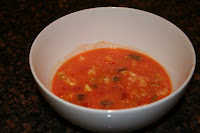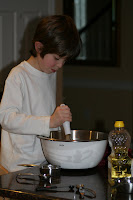


One day, after church school, I asked my daugher, J what she had learned about in her church school class. "Helping hands", she replied. She then proceeded to spend the rest of the day showing me all of the things her helping hands can do, like setting the table, petting the dog, and most of all, helping her little sister K to do just about everything, whether K liked it or not. We are truly blessed to have found a wonderful spiritual community in our local UU church that is very much in line with our family's beliefs. So, although speaking about our religious community is a bit off-topic to homeschooling, I really wanted to take some time to blog about how our church inspires us to use our 'helping hands' to give back to our community and to communities beyond our own.
I love the quote, "much is expected of those to whom much has been given". I believe it is from the Bible, although I first heard it in an interview with Ted Kennedy. It is so simple, yet it truly speaks to me of the importance of service and of helping those who need our help. At the moment, our church is a place where my children find a community that embraces volunteerism and the belief that our own small actions can make the world a better place, ideals that I hope they always hold close to their heart. They've collected spare change for Heifer Project International and the Guest At Our Table program, which are both part of UUSC's social justice mission. D and I also enjoy helping out at Cradles to Crayons, a local organization that helps give donated clothing and basic necessties to families in need.
This week we spent part of a rainy, dreary Thursday baking four cheese macaroni and cheese casserole for a local soup kitchen, another project run through our church. After grating six cups of cheese, D dubbed himself the master cheese-grater, J the master cheese-sprinkler, and K the master cheese-taster. I first signed up for the soup kitchen project for myself, but cooking always draws my kids to the kitchen, and it wasn't long before they were clamoring to help. They now really look forward to these monthly cooking projects and they enjoy knowing that their work helps others.
I look forward to watching my children grow up, in our home, within our church, and beyond, and I hope that they will one day find their own causes - causes that will touch their hearts and inspire them to continue using their helping hands.















